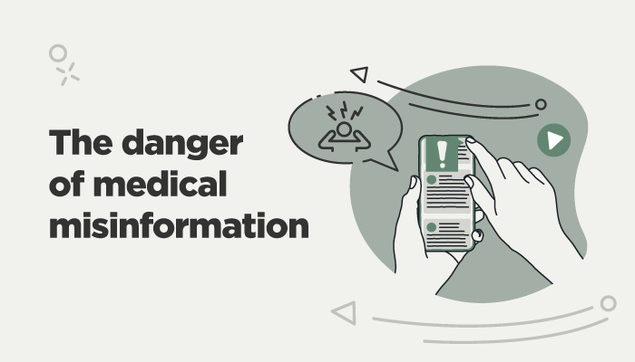1 in 4 Health Claims on Social Media Are Misleading — What You Need to Know

In today's digital age, social media platforms have become primary sources of health information for many. However, a significant portion of this information is misleading or false, posing serious risks to public health.
The Alarming Spread of False Health Information
A study conducted by researchers at the Massachusetts Institute of Technology (MIT) revealed that false news stories, including those related to health, spread more rapidly and broadly on social media than true stories. Specifically, false news was found to be 70% more likely to be retweeted than true news .
This rapid dissemination of false information is particularly concerning in the context of health-related topics, where misinformation can lead to harmful behaviors and public health crises.
📚 Source: Vosoughi, Roy, Soroush, Deb Roy, and Sinan Aral. "The spread of true and false news online." Science, 359(6380), 1146–1151 (2018). Also reported by MIT News.
🤔 Why Does Health Misinformation Spread So Easily?
Several factors contribute to the widespread sharing of health misinformation:
- Emotional Engagement: False stories often evoke strong emotions such as fear or surprise, prompting users to share them more readily.
- Novelty: Unusual or sensational claims attract more attention and are more likely to be shared.
- Lack of Critical Evaluation: Users may share information without thoroughly assessing its accuracy, especially if it aligns with their beliefs or experiences.
🛡️ Combating Health Misinformation
- Promoting Digital Literacy: Educating users on how to critically evaluate online information can reduce the spread of false claims.
- Platform Accountability: Social media platforms must implement and enforce policies to identify and limit the spread of misinformation.
- Fact-Checking Initiatives: Supporting organizations that verify information can help correct false narratives.
- Encouraging Responsible Sharing: Users should be encouraged to verify information before sharing and to rely on reputable sources for health information.
✅ Tips for Identifying Reliable Health Information
To navigate the vast amount of health information online:
- Check the Source: Trust information from reputable organizations such as the World Health Organization (WHO) or the Centers for Disease Control and Prevention (CDC).
- Look for Evidence: Reliable health claims are supported by scientific research and data.
- Beware of Sensationalism: Be cautious of headlines or posts that use dramatic language or make extraordinary claims without evidence.
- Consult Healthcare Professionals: For personal health concerns, always consult qualified healthcare providers.